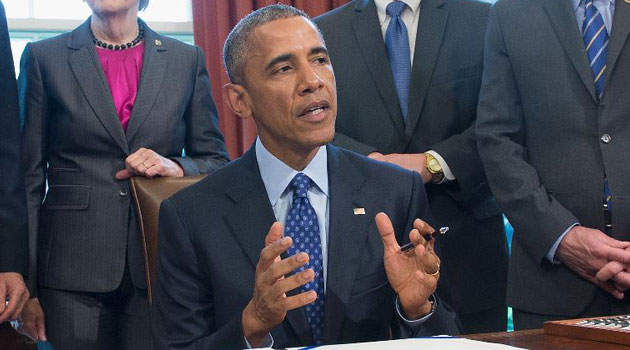
US President Barack Obama, shown in a file picture, signed into law landmark legislation ending the government’s bulk telephone data dragnet/AFP
The bill was given final passage earlier Tuesday by the US Senate, after being approved by the House several days earlier.
The measure reauthorizes key national security programs that had lapsed early this week.
“Glad the Senate finally passed the USA Freedom Act. It protects civil liberties and our national security,” President Barack Obama said on Twitter shortly before he signed it.
In a separate statement earlier, Obama chided lawmakers for the “needless delay and inexcusable lapse in important national security authorities,” in the days leading up to the bill’s eventual passage.
“My administration will work expeditiously to ensure our national security professionals again have the full set of vital tools they need to continue protecting the country,” the president said. READ: US Senate blocks government surveillance reform bill.
The bill halts the National Security Agency’s ability to scoop up and store metadata – telephone numbers, dates and times of calls – from millions of Americans who have no connection to terrorism.
It shifts responsibility for storing the data to telephone companies, allowing authorities to access the information only with a warrant from a secret counterterror court that identifies a specific person or group of people suspected of terror ties.
“It’s a historic moment,” Senator Patrick Leahy, the senior Democratic sponsor of the bill, said after the 67-32 vote, describing the bill as “the first major overhaul of government surveillance laws in decades.”
The vote follows days of sharp debate on the floor, with many Republicans split over their support for strong counterterror measures and the need for personal privacy protections in the wake of former NSA contractor Edward Snowden’s bombshell revelations about the bulk data dragnet in 2013.








































